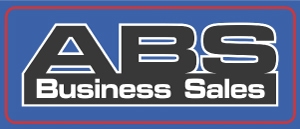For a buyer wanting to remove risk from the purchase of a business, it pays to have the seller keep 20% ownership of the business. The buyer is often willing to pay the full amount for this to occur. It makes sense if you equate the riskiness of a business with its value. By keeping the seller within the business, the Buyer gets the benefit of holding onto their experience and knowledge. If the seller keeps a management position, it puts the business closer to the category of a managed business. A managed business, one that does not require the full-time attention of the owner, is in high demand since it shares the characteristics of an investment rather than a job. A job requires an owner’s full-time attention and stops them from running another business. An investment does not. In economic terms, a managed business has a lower opportunity cost of ownership than one that requires the full-time attention of the owner.
This does not have to be a permanent feature of the arrangement between buyer and seller. The seller can negotiate so that upon meeting certain targets, the seller receives additional payments and will freed from any further involvement in the business. These targets may require a combination of meeting turnover or gross profit margins and ensuring that the buyer’s management is ready to take over from the seller.
They call this an earn-out.
Why Use an Earn-Out
The final amount of payment is contingent on meeting targets similar to the types outlined above. This provides an incentive for the previous owner to help ensure a smooth transition to the new owner with continued profitability and operation of the business.
The amount of the purchase that is left as part of an earn-out varies, although sensible constraints usually apply. The aim is to share risk. An arrangement where the entire purchase price of a business is part of an earn out rarely meets this requirement. Typically, the amount that is part of the earn out is less than 50%. A common number is 20%. This is the amount that can offer itself as a premium to those sellers who share the risk of transferring a business. A seller can get 20% more for their business for lowering the risk in the transaction. Hence, the ability to get 25% more for the business (20/80 is 25%).
Term of an Earn-Out
The overlapping of ownership raises the question of how long this will last. It will depend on the business and how long it takes for the risk to dissipate. It is likely to run for a period of at least a year or two. Although this may sound like an enormous sacrifice, it is important to remember that the seller shifts from bearing responsibility for everything in the business to immediately having a large portion of financial responsibility shifted to the buyer. In addition, the responsibility of management alters to one where the ongoing tuition of new managers reduces the decision-making burden of the seller over time and life becomes easier.
Eventually, the seller may even choose to work in the business on a basis longer than initially envisaged. Responsibility and pressure of running the business lifts. Technical work that may have been the original reason the seller started or purchased the business is all that’s left. The buyer and seller may agree that the seller stays on. This helps keep valuable experience in the business.
Conditions of an Earn-Out
To avoid an earn-out turning into a daunting and potentially fraught process, it is best to use broad measures to gauge the progress of the earn-out. Targets such as gross profit or turnover rather than net profit. These measures are easier to define and are less susceptible to alteration through accounting practice.
As well as targets for turnover or gross profit, the structure of an earn-out can include a wage for the seller during the period of the transition. If the seller leaves early, they forego wage or salary, but the payment that relies on meeting the targets stays in place.
Benefits of an Earn-Out
An earn-out is a clever way of breaking a transaction into a series of goals so that they do not have to occur simultaneously.
The payment for the business can occur at a time that is at least partially removed from the timing of transferring responsibility for the business.
A buyer taking over the business does not need to know everything about how to run the business at the handover date.
It provides the opportunity for the business to provide some of the finance for its purchase.
An unhurried and thoughtful transfer of business operations can take place.
There is less chance of large-scale sudden change to the management intimidating the staff.
Best of all for the seller, they are likely to get more for their business.
An underlying driver of the success of an earn-out is the notion of retention.
Retention of critical skills, customer relationships, production processes, industry knowledge, methods of business and more.
An earn-out provides a means for this to be passed from a seller to a buyer and to minimise the risk of disruption to the business that would cause the loss of goodwill.
It is the amount of goodwill that a business can generate that is a measure of its success. It is a shame to see that diminish simply because of a transaction from a seller to a buyer.
Similarly, it is a shame to see business value that is lost because the various risks of taking over a business were not mitigated but simply absorbed in the business’s price. While an earn out may require the seller to stay on in the business longer than a simple business sale, the benefits flow immediately so it is more of a natural process for the seller as they leave the business rather than a process where everything happens on one day.








